#countess sophie esterházy
Text



Dominique Devenport (Empress Elisabeth) and Tanja Schleiff (Countess Esterházy) behind the scenes of the fourth season of Sisi (2021).
#Sisi#Sisi (2021)#costume drama#historical drama#period drama#dominique devenport#Tanja Schleiff#Elisabeth in Bavaria#elisabeth of austria hungary#elisabeth of austria#Countess Sophie Esterházy#princess sophie of liechtenstein#german tv#german series#behind the scenes#sisi.rtl
22 notes
·
View notes
Text
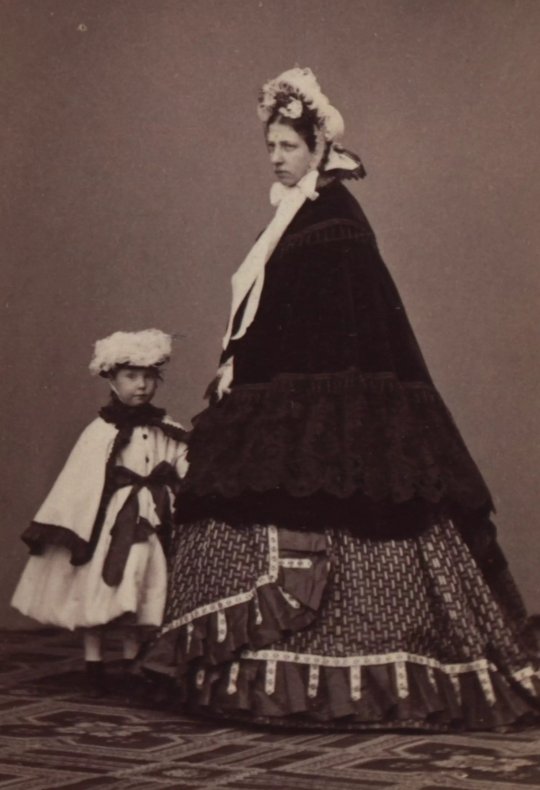
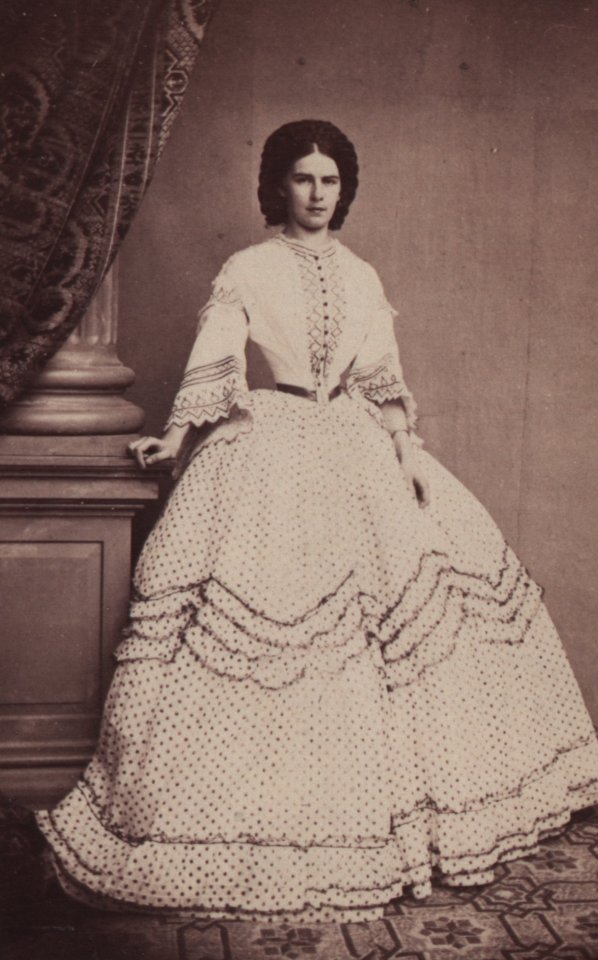
Elisabeth's grand mistress of the court [Oberhofmeisterin], Countess Esterházy, with whom she had never felt comfortable, remained in Vienna. Archduchess Sophie had no say in the choice of Elisabeth's travel entourage. She complained to Franz Joseph's brother Karl Ludwig about the lack of trust: the advice she had given Franz Joseph had been nothing more than “fruitless attempts”. Thus Sisi was not accompanied to Madeira by her grand mistress of the court, but by her new deputy, Princess Mathilde Windisch-Grätz. The latter had only been appointed as Elisabeth's lady-in-waiting in 1860 and had endeared herself to her from the very first moment. Mathilde's husband had died in the Italian campaign of 1859; the empress had shown compassion for the grieving young widow, left with a small child, and the two became friends. Mathilde's brother was not surprised that she had agreed to go: “That Mathilde would comply with the Empress' wishes was to be expected, given the personal relationship between the two, but the responsibility for this undertaking, so infinitely serious in every respect, is great”. The appointment of Mathilde as deputy grand mistress of the empress's court aroused some astonishment. Archduchess Therese was furious: “Countess Esterházy is being sidelined in a very strange way. In her place, the young Mathilde Windisch-Grätz goes to Madeira; it is also strange that the latter leaves her small child behind”.
Mathilde was an intelligent and thoughtful woman who did not allow herself to jump to conclusions about people. She tried to look at Elisabeth without prejudice and not let herself be influenced by the opinion of the court society. During her stay in Madeira she kept a diary: reading it would be instructive, as the young deputy to the grand mistress of the court gained a deep insight into the empress's nature. But she was in doubt as to whether she would pass on her private notes on Elisabeth to posterity, who would hardly get a correct idea of her complex personality. That is why she left his brother to decide whether or not the diary should be kept. The comments on her relationship with Elisabeth and her character contained therein are, in their frankness, more interesting than what most contemporary women were able to report. “If you think,” Mathilde wrote to her brother, “that what I have written is detrimental to the existing opinion of her [Elisabeth], see to it that no one else but yourself can read it; and do not judge her too harshly; tell yourself that if, after the undeniably difficult hours she has given me, I still cling to her with such a warm and intimate love, there must be more in this woman's nature than the public can recognise. One has to know her exactly as I do, at least as long as I have lived in close contact with her world, to be able to correctly judge some of her faults, unfortunately, but also the qualities of her character. God bless her, I have few more ardent desires”. Alfred Windisch-Grätz eventually decided to destroy his sister's diary.
Winkelhofer, Martina (2022). Sissi. La vera storia. Il camino della giovane imperatrice (Translation done by DeepL. Please keep in mind that in a machine translation a lot of nuance may/will be lost)
Pictured: Princess Mathilde with her daughter Eleonore, by Ludwig Angerer, circa 1862 (left); Empress Elisabeth, by an unknown photographer, circa 1860 (right). Via the Wien Museum.
#fell to my knees when i learned this. alfred WHY#elisabeth's first lost media#empress elisabeth of austria#princess mathilde windisch-graetz
25 notes
·
View notes
Note
I noticed your tags on the "bad localisation"-post and now I must know the lore... the Finnish translator of Elisabeth didn't speak German???
Hehe, I'm glad you asked!!
Mind you, this production happened when I was a small child, so all I have is second-hand knowledge from the internet (and an audio recording). Also, I may have exaggerated for comedic effect in my original tags lol, I don't know if he genuinely didn't speak it. However...
The guy who translated the Finnish Elisabeth was a very famous (prolific, if nothing else) theatre director and musical translator, starting his career in the late 60s already with a wildly popular production of Hair. Elisabeth seems to be among the only German-language shows he ever worked on - most of it was translations from English and French. ngl I also sort of hate his musical translations from English LMAO - because of how prolific he was, they still haunt the Finnish musical scene today... One big one he did is Cabaret back in the 90s, and a theatre that put a big fancy production on in 2020 actually redid all of the songs and only kept his dialogue because the translation was so clunky lmao. But I once went to the library to dig up his original lyrics to the title song and omg they suck, I wrote better ones in two minutes because I needed a Finnish version quickly ahshshsh. So already, it's a bit of a bad sign - this man is not a translator by profession or training, he's a director who started out doing it for practical purposes, and has a pretty broad set of languages he works in.
But then again - maybe it wouldn't have been a problem, especially since he had such extensive experience. In fact, Elisabeth was the last translation he ever did before passing away rather shortly after (of old age), so maybe I shouldn't be too harsh on him... However, the fact remains that the translation, just as lyrics, is pretty terrible and nonsensical sjjsjsjd.
My initial comment was actually largely inspired by this blog post by someone who actually saw the prod live (from onenightintheatre on blogspot), quote:
It sounded like the translator hadn't really understood German, because many lines sounded like someone had taken a dictionary, looked up the most important words of the sentence and then written a whole new sentence(-ish) based on those words. An example that remained etched in my mind:
("Eine Kaiserin muss glänzen"; Finnish, the Finnish translation in English, and the original German text)
Countess Esterházy: Suunne aukaiskaa! ("Open your mouth!") (Öffnen Sie den Mund!)
Sophie: Keltaiset ei olla saa! ("[Teeth] may not be yellow!") (Die sind zu gelb, das darf nicht sein!)
Elisabeth: Tammalla saa! ("Mare's [teeth] may!") (Bin ich ein Pferd?)
So... Instead of asking why they're treating her like a horse, Elisabeth thinks she is a horse and can therefore have yellow teeth? Oddly, "Bellaria" was significantly better translated than rest of the musical and actually sounded beautiful and made sense. There were also factual errors, like Rudolf complaining to Elisabeth that he must get married, when at that point of the story he had, in fact, been married for several years. The translator passed away half a year after the derniere, though, so maybe he wasn't at his best anymore when he did the translation.
As for me, I don't know the Finnish translation by heart, but some of my favourite songs (well, mostly Schatten 2) which I do know by heart also had the ball dropped on them... in that song, Rudolf complains that the court is wasting money on parties (woah good job working in the "dancing around the golden calf" metaphor, I'm sure the original author didn't mean it metaphorically to go with the pied piper thing, he meant literal dancing - though I guess this is accidentally accurate to irl rudolf and his ranty pamphlet on the idle nobility xD) and it's just quite clunky and repetitive overall without getting the main point across too well. Which is such a pity! I mean, translations are hard, but Kunze's work has since been translated into Finnish well, with the references and thematic messages intact, it's not impossible. So in a way, I think this one is a case of someone well-established in the industry getting the job because he happened to be there and have an extensive track record, not because he actually had the skills to make the best possible translation...
Ahsdhsfhfs so yeah. There's no proof that he didn't speak German, but it's my personal theory. Also, according to a few sources, Kunze himself hated this translation......
9 notes
·
View notes
Text
The Empress
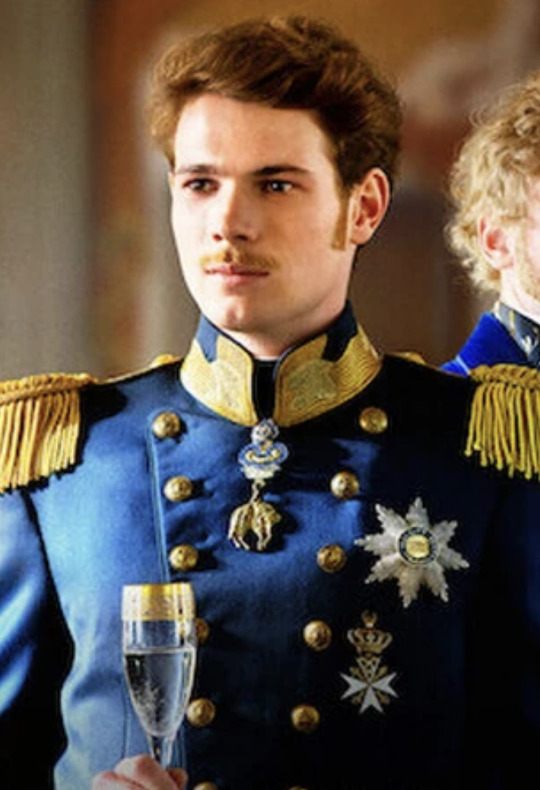
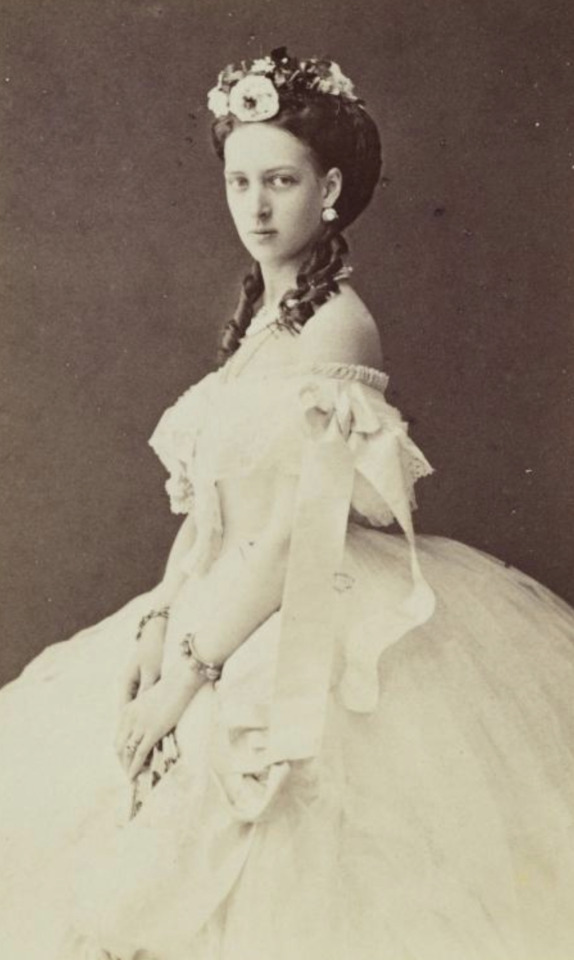
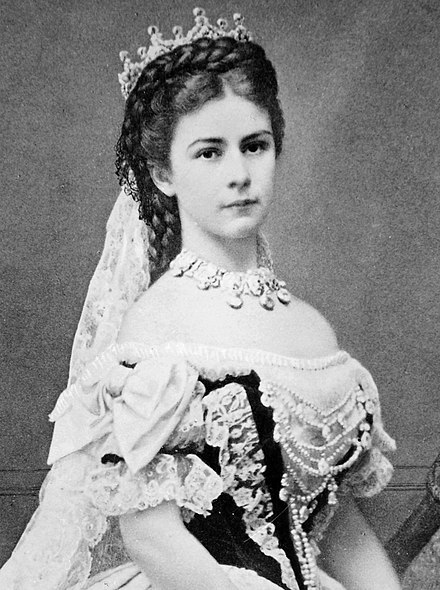
•Emperor Franz Joseph Of Austria
•Empress Alexandra Of Austria
•GrandDuchess Elisabeth of Austria
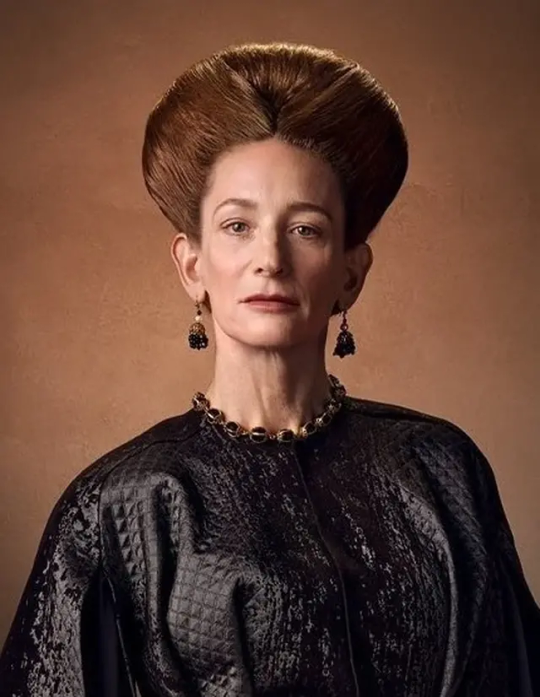
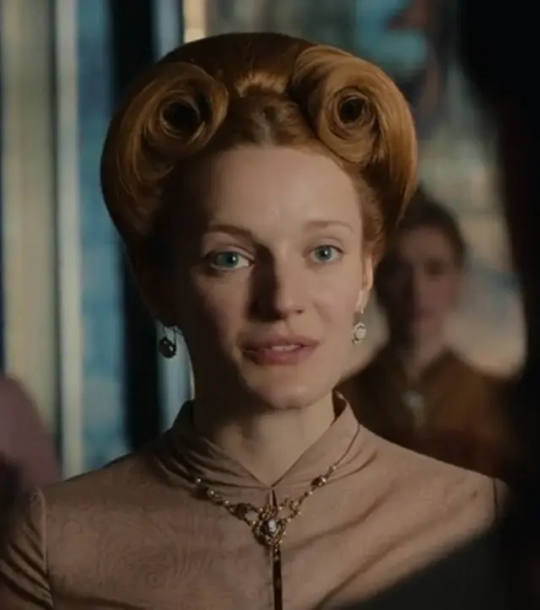
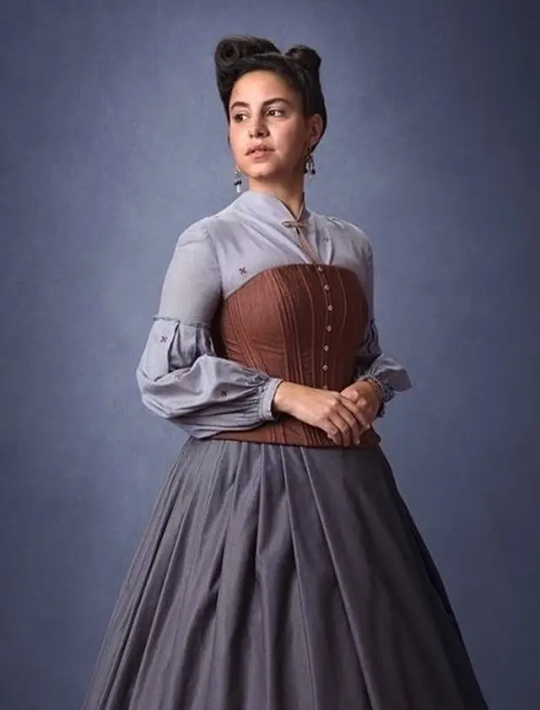
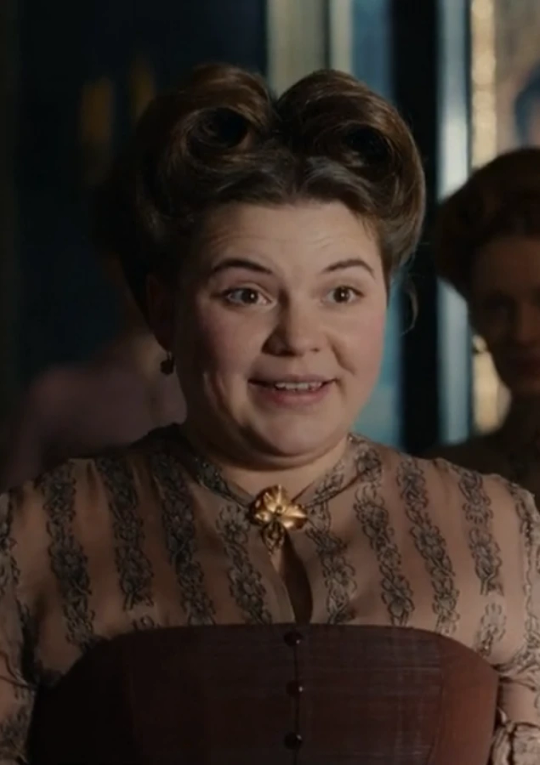
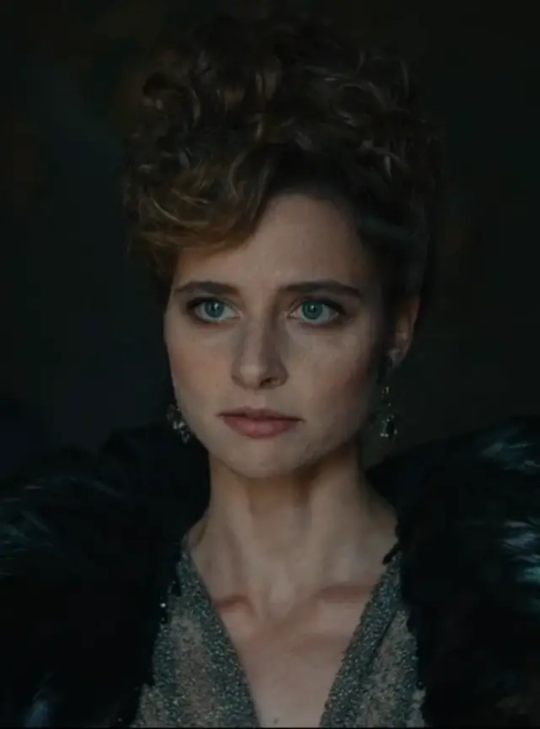
Elisabeth Ladies In Waiting
•Countess Sophie Esterházy
•Countess Amalia von Salm-Reifferscheidt
•Countess Amalia von Salm-Reifferscheidt
•Leontine von Apafi
•Countess Charlotte von Stubenberg
•Countess Louise Gundemann
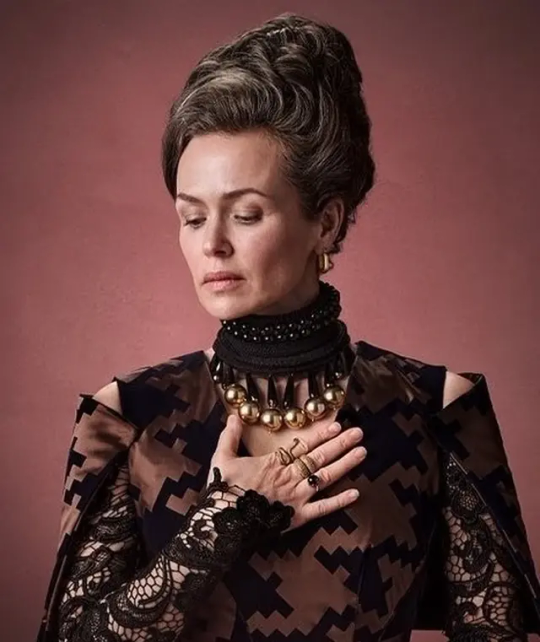
Archduchess Sophie
•Controlling GrandMother Of Elisabeth
5 notes
·
View notes
Photo










House of Liechtenstein & of Esterházy: Princess Sophie of Liechtenstein
Sophie Mária Josepha was born as the second daughter and third child to Johann Joseph, The Prince of Liechtenstein, and his wife Landgravine Josepha of Fürstenberg-Weitra. At the age of 18, she married Cout Vinzenz Esterházy of Galantha, a major general and chamberlain, who was 11 years older than her. Her husband died in 1835 and the marriage remained childless.
Sophie is best known as the first Mistress of the Robes of Empress Elisabeth of Austria. Since Elisabeth was so young when she arrived at Viennese court, Sophie’s task included those of a governess. The relationship of the conservative and nearly 40 years older Sophie to the young, wild-spirited empress was strained from the beginning as they were different as night and day.
Elisabeth felt Sophie’s presence as being watched constantly. This might have been not only a feeling but the truth. Countess Esterházy was a close friend and former lady-in-waiting of Archduchess Sophie, Elisabeth’s aunt and mother-in-law. The countess rise in station at Viennese court was greatly thanks to The Emperor’s mother, so her loyalty lay closer with her. In fact, the Archduchess send her friend with the young married couple on their honeymoon to have her report on any protocol mistakes of Elisabeth.
When Elisabeth denied Sophie to accompany her to Madeira in the winter of 1860, her mother-in-law made her friend the governess of her grandchildren. In November the following year, Countess Esterházy traveled with the children and The Emperor to Venice to visit The Empress. During her stay there, Sophie and Elisabeth had multiple fights about the raising and education of the children. Sophie was determined to stick to the principles of Archduchess Sophie. The Empress demanded for Sophie to be let go of her position. Probably in January 1862, The Emperor gave in and removed the Countess from her position. Regardless, he thanked her in person for her services and even presented her with a valuable bracelet with his portrait.
Sophie of Liechtenstein died on June 17th, 1869. She was burried in the Liechtenstein family crypt in Wranau. The Emperor and The Empress attended her funeral.
// Franziska Stavjanik as Countess Sophie Esterházy in Sisi (2009)
#period drama#perioddramaedit#dailyperioddrama#Sophie Countess Esterházy of Galantha#Princess Sophie of Liechtenstein#historic women#women in history#historyedit#19th century#Sissi#Sisi#Sisi (2009)#1800s#Austrian History#European history#Women of the House of Liechtenstein#House of Liechtenstein#Ladies-in-waiting#House of Esterházy
201 notes
·
View notes
Photo


Part of the main cast of Sisi (2021): Sisi (Dominique Devenport), Franz Joseph (Jannik Schümann), Archduchess Sophie (Désirée Nosbuch), Countess Esterházy (Tanja Schleiff), daughter most likely to be Sophie (Luize Pars Balode) and Fanny /Feifalik?/ (Paula Kober)
#perioddramaedit#perioddramasource#sisiedit#sisi 2021#empress elisabeth#hope i didnt put incorrect info this time hgfdfg#im feeling v confident about my guesses too but. im playing safe#anyway im excited#noned*mine#mine
219 notes
·
View notes
Text

Gustav Schmidt (Ludwig II of Bavaria), Tanja Schleiff (Countess Esterházy) and Philine Schmölzer (Sophie in Bavaria) behind the scenes of the fourth season of Sisi (2021).
#Sisi#Sisi (2021)#costume drama#historical drama#period drama#Gustav Schmidt#Tanja Schleiff#Philine Schmölzer#Ludwig II of Bavaria#Countess Sophie Esterházy#princess sophie of liechtenstein#Sophie in Bavaria#german tv#german series#behind the scenes#sisi.rtl
13 notes
·
View notes
Text

Dominique Devenport (Empress Elisabeth), Eli Riccardi and Tanja Schleiff (Countess Esterházy) behind the scenes of the fourth season of Sisi (2021).
#Sisi#Sisi (2021)#costume drama#historical drama#period drama#Dominique Devenport#Eli Riccardi#Tanja Schleiff#Elisabeth in Bavaria#elisabeth of austria hungary#elisabeth of austria#Countess Sophie Esterházy#Princess Sophie of Liechtenstein#german tv#german series#behind the scenes#sisi.rtl
7 notes
·
View notes
Text

Tanja Schleiff (Countess Esterházy) and a very talented chicken actress behind the scenes of the fourth season of Sisi (2021).
Tanja also posted a photo of a cake which was decorated with the words Bergfest Sisi. Bergfest's literal translation is mountain party which is often used in German to describe that you are half-way through the week or a project, so we can assume Sisi will shoot until at least the middle of July, maybe the beginning of August, depending on scheduling.
#Sisi#Sisi (2021)#costume drama#historical drama#period drama#Tanja Schleiff#Countess Sophie Esterházy#princess sophie of liechtenstein#german tv#german series#behind the scenes#sisi.rtl
8 notes
·
View notes
Text

Jannik Schümann (Emperor Franz Joseph), Dominique Devenport (Empress Elisabeth), Tanja Schleiff (Countess Esterházy) and Désirée Nosbusch (Archduchess Sophie) behind the scenes of the fourth season of Sisi (2021).
#Sisi#Sisi (2021)#costume drama#historical drama#period drama#Jannik Schümann#Dominique Devenport#Tanja Schleiff#Désirée Nosbusch#Emperor Franz Joseph#Franz Joseph of Austria#Elisabeth in Bavaria#elisabeth of austria hungary#elisabeth of austria#Archduchess Sophie of Austria#Princess Sophie of Bavaria#Countess Sophie Esterházy#princess sophie of liechtenstein#german tv#german series#behind the scenes#sisi.rtl
12 notes
·
View notes
Text

Director Sven Bohse, Désirée Nosbusch (Archduchess Sophie), Dominique Devenport (Empress Elisabeth), Tanja Schleiff (Countess Esterházy), Kristina Schroeter (Archduchess Gisela), Arian Wegener (Crown Prince Rudolf), Julia Stemberger (Ludovika, The Duchess in Bavaria), Philine Schmölzer (Sophie in Bavaria) and Rick Okon (Ludwig "Louis" in Bavaria) behind the scenes of the fourth season of Sisi (2021).
#Sisi#Sisi (2021)#costume drama#historical drama#period drama#Sven Bohse#Désirée Nosbusch#Dominique Devenport#Tanja Schleiff#Kristina Schroeter#Arian Wegener#Julia Stemberger#Philine Schmölzer#Rick Okon#Archduchess Sophie of Austria#Princess Sophie of Bavaria#Elisabeth in Bavaria#elisabeth of austria hungary#elisabeth of austria#Countess Sophie Esterházy#princess sophie of liechtenstein#archduchess gisela of austria#Crown Prince Rudolf#ludovika of bavaria#ludovika in bavaria#Ludwig in Bavaria#Sophie in Bavaria#german tv#german series#behind the scenes
8 notes
·
View notes
Text
instagram
Jannik Schümann (Emperor Franz Joseph) shared a few bloopers from the third season of Sisi (2021).
Jannik: Napoleon was overthrown.
Dominique: What?
Jannik: Hey, it's true!
Dominique: Jan! You mustn't laugh.
Tanja: Oh God! Shit! What kind of crap is this? Shit.
Crew: Camera was too late. Leave it! Leave it!
Jannik: No.
#Sisi#Sisi (2021)#costume drama#historical drama#period drama#Jannik Schümann#Dominique Devenport#Tanja Schleiff#Emperor Franz Joseph#Franz Joseph of Austria#Elisabeth in Bavaria#elisabeth of austria hungary#elisabeth of austria#Countess Sophie Esterházy#princess sophie of liechtenstein#german tv#german series#behind the scenes#sisi.rtl#Bloopers#Instagram
7 notes
·
View notes
Text

Tanja Schleiff (Countess Esterházy) and Jannik Schümann (Emperor Franz Joseph) behind the scenes of the fourth season of Sisi (2021).
#Sisi#Sisi (2021)#costume drama#historical drama#period drama#Jannik Schümann#Tanja Schleiff#Emperor Franz Joseph#Franz Joseph of Austria#Countess Sophie Esterházy#princess sophie of liechtenstein#german tv#german series#behind the scenes#sisi.rtl
6 notes
·
View notes
Text

Tanja Schleiff (Countess Esterházy) and Dominique Devenport (Empress Elisabeth) behind the scenes of the fourth season of Sisi (2021).
#Sisi#Sisi (2021)#costume drama#historical drama#period drama#Tanja Schleiff#Dominique Devenport#Countess Sophie Esterházy#princess sophie of liechtenstein#Elisabeth in Bavaria#elisabeth of austria hungary#elisabeth of austria#german tv#german series#behind the scenes#sisi.rtl
4 notes
·
View notes
Text

Tanja Schleiff (Countess Esterházy) and Ben Sorg behind the scenes of the fourth season of Sisi (2021).
#Sisi#Sisi (2021)#costume drama#historical drama#period drama#Tanja Schleiff#Ben Sorg#Countess Sophie Esterházy#princess sophie of liechtenstein#german tv#german series#behind the scenes#sisi.rtl
3 notes
·
View notes
Text

Tanja Schleiff (Countess Esterházy), Désirée Nosbusch (Archduchess Sophie) and Jannik Schümann (Emperor Franz Joseph) behind the scenes of the fourth season of Sisi (2021).
#Sisi#Sisi (2021)#costume drama#historical drama#period drama#Désirée Nosbusch#Tanja Schleiff#Jannik Schümann#Archduchess Sophie of Austria#Princess Sophie of Bavaria#Emperor Franz Joseph#Franz Joseph of Austria#Countess Sophie Esterházy#princess sophie of liechtenstein#german tv#german series#behind the scenes#sisi.rtl
3 notes
·
View notes